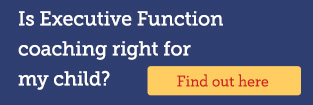Editor's note: This week, we welcome guest blogger Ben Sexton, founder of Sexton Test Prep and Tutoring, located in Wellesley, MA. Please read his complete bio below.
Dear high school junior,
Repeat after me: Junior year is manageable.
So much of the hype surrounding junior year is negative. It’s true that junior year can be tough in spots. However, students can avoid many of the potentially tough situations with good long-term planning. If you can crank up your planning and prioritizing skills to accommodate the demands of junior year, you can crush to bits the odds of becoming a frazzled, burnt out husk by June.
However, students can avoid many of the potentially tough situations with good long-term planning. If you can crank up your planning and prioritizing skills to accommodate the demands of junior year, you can crush to bits the odds of becoming a frazzled, burnt out husk by June.
A typical school year consists of many short-term objectives, like preparing for a calculus test or reading The Scarlet Letter. At the same time, numerous long-term projects and commitments figure into the mix and directly affect the time you have to devote to your priorities. These long-term projects or commitments can include:
-
A school play
-
Planning and doing college visits
-
A 10 page research paper for history
-
Varsity basketball season
-
Science Fair project
-
Volunteer work
-
Preparing for AP Exams
-
Part time job
-
Dance classes
-
Preparing for final exams
Now, here’s where smart planning comes in. As you consider your junior year, you shouldn’t plan too many long-term projects during the same time period. Of course, some of them you have no choice about. (Try telling your history teacher that you just don’t have time for that research paper. Wait, don’t try that!) But there are some commitments that you can select mindfully, with an eye toward balance. And sometimes the choice is not easy, but it keeps you sane and working on all cylinders. The tough part is, once you have committed to too many long-term projects at once, you usually can’t get out of them quickly or easily, so the scheduling logjam becomes a long-term problem.
Standardized test preparation (SAT, ACT) is another long-term project for junior year. Most students who want to make test prep a priority commit 12-20 hours to preparation, sometimes even more. As such, the process usually stretches out over a couple to a few months. For test prep to work, you need to make time for it – there’s the tutoring time as well as the test prep homework time to calculate into your schedule. If you don’t commit to making time for it, the test prep likely won’t work, and will just become an additional burden and source of frustration, with little to show for all that trouble. We see a fair amount of family tension when parents discover their investment in prep services has been jeopardized by poor student follow-through. Trust me, you don’t want to be in one of those meetings!
Consequently, even if you don’t plan to start test preparation at the beginning of junior year, you should still plan out your prep timeline. That way, you can make sure the process occurs at a time when you can maximize results. In other words, make sure you get bang for your test prep buck.
I remember one student of mine from four or five years ago, a junior from Medfield High School. He was planning to take the May SAT, but he was also on the varsity lacrosse team. Well, the test date approached, and his team made the state tournament. The team kept winning and winning, and the coach kept calling for new practices, often with no notice. As a result, he missed his last three SAT tutoring sessions, took the May test anyway, and didn’t do very well because he didn’t have time to study. While you can’t predict whether your team will make the state tournament, you can still anticipate that lacrosse season might be a bad time to do test prep if lacrosse is your main sport.
In the end, he came back and completed tutoring in fall of his senior year, when he wasn’t playing a sport. He did very well because he had much less competition for his time, allowing him to fully use the test prep process.
Timelines for many long-term projects are predictable, such as AP exams and final exams. This allows us to make key recommendations for the timing of standardized test-taking:
-
Public School students should avoid the June ACT, because many times it occurs the weekend before finals. However, private school students likely just finished their school year, and might be sufficiently fresh after a few days rest.
-
Students taking AP exams should avoid the May SAT, because it is the weekend before the first AP Exams.
-
Students taking SAT subject tests should avoid the June SAT, because most students take subject tests in June.
These test-timing decisions creep up on you faster than you might think, underscoring the importance of doing long-term planning for the year at the beginning of the school year. You should not have more than one or two long-term projects overlapping. If you do, the burden of those and schoolwork may become overwhelming; even if you are able to complete everything, you may not be able to show your true capabilities when you’re spread too thin.
Long-term planning is a key executive functioning skill and the secret to making large projects manageable. If you consistently struggle to make long-term plans for yourself, consider working with an executive function coach to develop planning strategies.
Now, one more time, repeat after me: Junior year is manageable.
photo credit: Guests : The Dream Factory LA via photopin(license)
Does your child need to learn time management strategies? Executive Function coaching can help. Click below to find out more.


